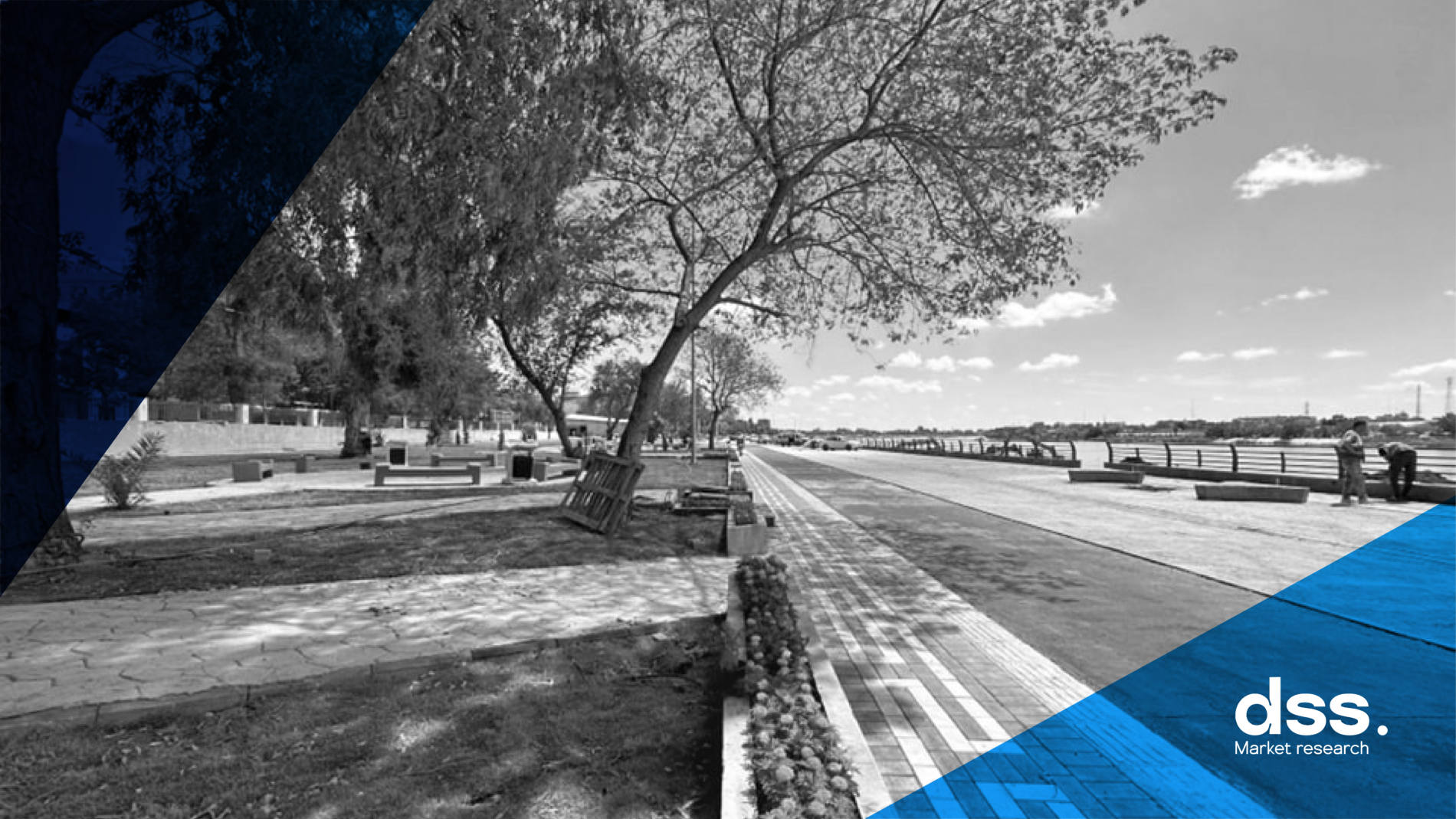Green spaces are the lungs of modern cities, playing a pivotal role in maintaining environmental balance and providing vital breathing space for residents. In Baghdad, which faces the pressures of population expansion and rapid urban development, the need to prioritise green spaces has become urgent. These areas act as natural barriers against environmental pollution and serve as a means to improve the quality of life in the city, yet urban development challenges significantly hinder this balance.
The Importance of Green Spaces
The importance of green spaces in Baghdad is multifaceted, covering environmental, health, and social aspects. Environmentally, trees and gardens absorb carbon dioxide and produce oxygen, which is crucial in a city plagued by high levels of pollution from vehicles and industrial activities. Green spaces also help reduce the high temperatures that are characteristic of Baghdad, as plants absorb heat and mitigate the “heat island effect” caused by residential clusters and tall buildings.
From a health perspective, green spaces offer open areas for physical activities like walking, which enhances physical fitness and reduces public health issues related to urban lifestyles such as obesity and heart disease. Moreover, they help lower stress and anxiety levels among city residents, with studies showing that spending time in nature boosts mental health.
Challenges to Development
Despite the significant environmental and social importance of green spaces, Baghdad faces numerous challenges that hinder their development and preservation. One of the main challenges is uncontrolled urban sprawl, where available land is exploited for housing projects and infrastructure without considering the need to allocate green spaces. This expansion places immense pressure on the city’s natural environment, leading to a substantial decline in green space coverage.
In addition, the lack of effective environmental policies and regulations to protect these spaces poses a serious problem. There are currently no comprehensive strategies to safeguard green areas from being cleared or used inappropriately, making them vulnerable to degradation over time. The shortage of funding allocated for the maintenance and development of public parks further complicates the situation, as many areas lack the necessary infrastructure to preserve the quality of these spaces.
Furthermore, the lack of community awareness regarding the importance of green spaces exacerbates these challenges. Green areas are often viewed as an unnecessary luxury, diminishing public appreciation for their role in improving quality of life and reducing harmful environmental impacts.
Possible Solutions
To address these challenges, relevant authorities in Baghdad must adopt sustainable development strategies that balance urban growth with environmental protection. This can begin with the implementation of strict policies to limit the exploitation of green spaces for uncontrolled construction, alongside allocating more funding for the maintenance and development of public parks and green spaces. Collaboration between the public and private sectors can also be encouraged to create green projects aimed at improving the urban environment.
Community awareness is also a key part of the solution. Authorities should organise awareness campaigns aimed at increasing public understanding of the importance of preserving green spaces and their health and environmental benefits. By involving local communities in the planning and preservation of these areas, greater success can be achieved in developing a sustainable and healthy environment for all.
In conclusion, The challenges facing green spaces in Baghdad require the concerted efforts of all stakeholders to find solutions that ensure the preservation of these vital resources. By leveraging sustainable planning and effective environmental policies, Baghdad can overcome these challenges and achieve a balance between urban development and environmental conservation. Developing green spaces in the city is not merely a luxury, but a necessity to improve quality of life and ensure a sustainable environmental future.


Leave A Comment